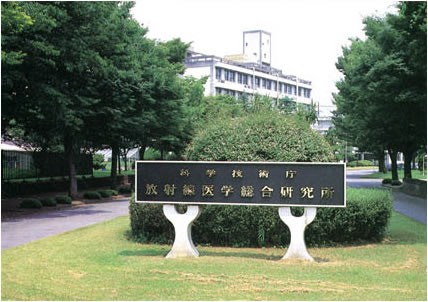 What Should One Do if Accidentally Exposed to Radiation? What Should One Do if Accidentally Exposed to Radiation?
 Record the details of the exposure and seek medical advice at a specialist center. Record the details of the exposure and seek medical advice at a specialist center.
It would appear that there are not many situations in which the general public could become accidentally exposed. However, let's assume that you have been exposed to radiation in some kind of incident. First, it is necessary to make as detailed a record as possible of the situation in which the exposure occurred. This includes information such as the type of radiation source, the distance from the source, the duration of exposure, whether the source was shielded, and the post-exposure symptoms. Next, you must go to a hospital for treatment. The first major problem is the acute injury caused by radiation, and among general hospitals, there are extremely few medical centers able to treat a physical injury caused by exposure. In prefectures home to nuclear power plants across Japan, there are special hospitals designated for dealing with nuclear accidents.
National Institute of Radiological Sciences

Photo provided by the National Institute of Radiological Sciences |
Hence, after checking with the emergency medical team, one should be transported to a designated emergency hospital. In prefectures with no atomic power plants or in situations where there are no designated hospitals nearby, one should attend the nearest secondary hospital, from where the National Institute of Radiological Sciences located at Inage in Chiba Prefecture should be contacted for advice on the next steps. Depending on the severity of the symptoms, one may be transported to the appropriate center by a medical helicopter.
The lymphocyte count and chromosomal abnormalities may be analyzed for an objective measurement of the exposure dose. However, changes do not appear unless the exposure dose is above a certain level (the lymphocyte count changes at a dose of 500 mSv or more, and chromosome abnormalities quantitatively occur after 100 mSv)
If there is a possibility of exposure, decontamination and medical care may be required to prevent the spread of contamination, depending on circumstances, and specialists in the field of dosimetry may need to be called in.
Cheked by Kuniaki Hayashi M.D. Professor Nagasaki University Graduate School of Biomedical Sciences
Cheked by Yutaka Okumura Professor Nagasaki Atomic Bomb Disease Institute Nagasaki University Graduate School of Biomedical Sciences
written by Hiroyuki Namba M.D. Associate Professor Nagasaki Atomic Bomb Disease Institute Nagasaki University Graduate School of Biomedical Sciences
|

